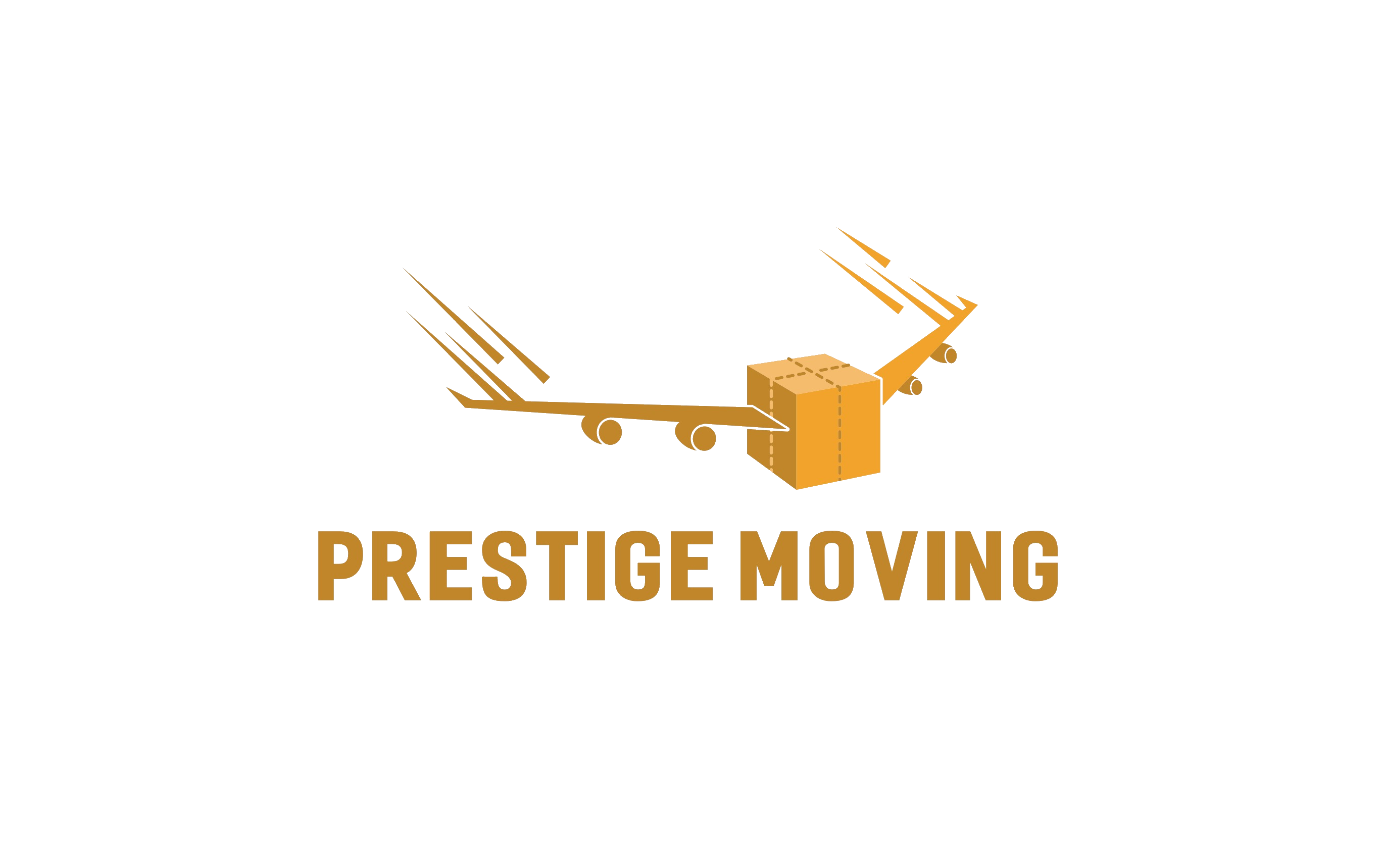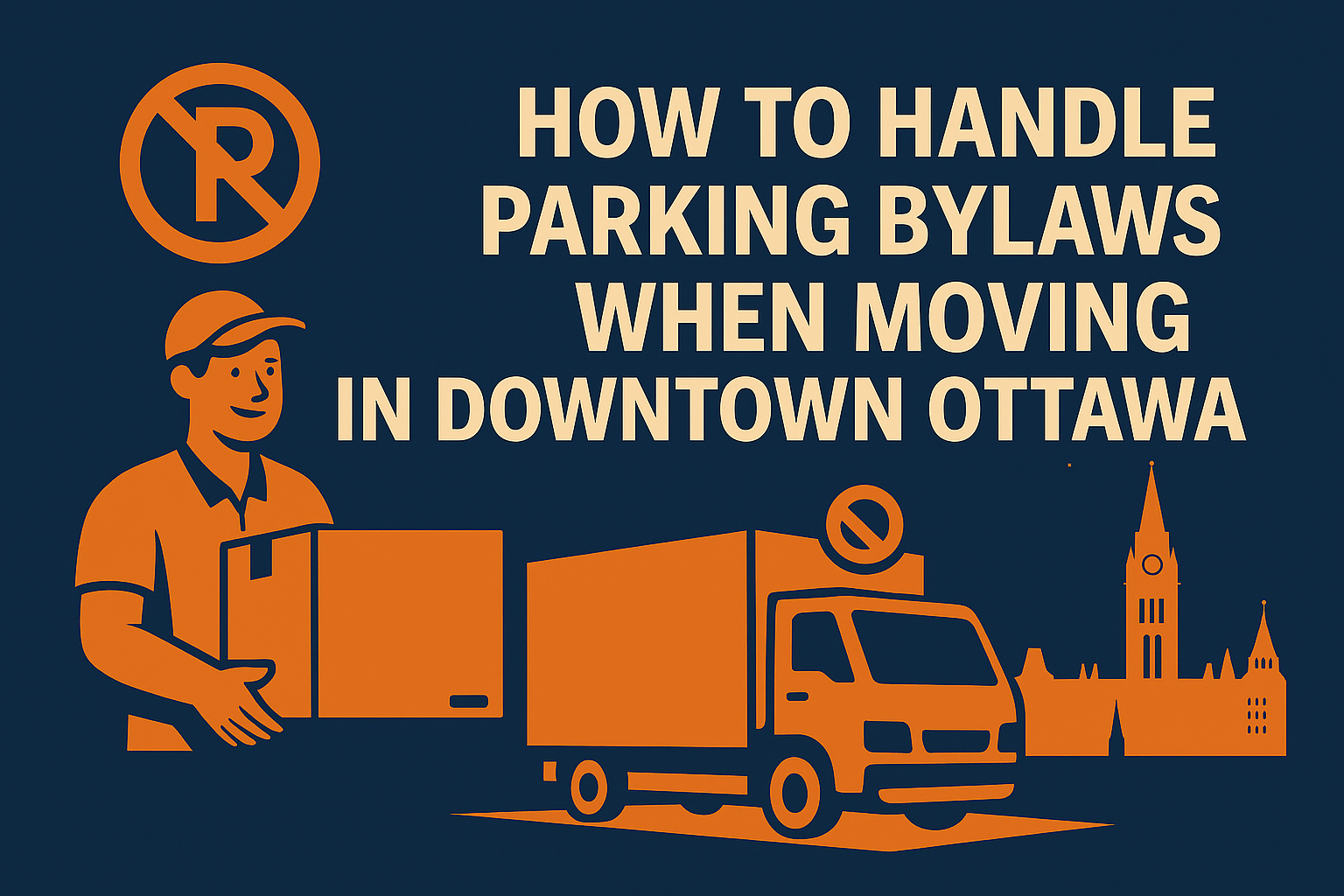Moving in downtown Ottawa is exciting — but if you overlook parking bylaws, your moving day can quickly turn stressful and expensive. Between strict regulations, limited curb space, and the need for permits, planning ahead is essential to avoid fines or towing. This comprehensive guide breaks down everything you need to know about handling parking bylaws during your downtown move.
Understanding Ottawa’s Downtown Parking Regulations
Downtown Ottawa is governed by a complex set of municipal parking bylaws designed to manage high traffic, construction zones, bike lanes, and pedestrian areas. These rules apply to both residential and commercial moves.
Restricted Zones and No-Stopping Areas
Certain downtown streets, especially near government buildings and commercial hubs, have strict no-stopping and no-parking zones. These are typically enforced 24/7. Moving trucks parked in these areas without proper authorization risk immediate ticketing or towing under Ottawa’s Parking By-Laws.
- Examples of restricted areas: Wellington Street near Parliament Hill, Elgin Street, Sussex Drive, and busy corridors around Rideau Street.
- Typical penalties: Parking tickets can range from $40 to $125 depending on the violation, and towing fees add significant extra costs.
Temporary No-Parking Signs
Residents and movers often underestimate the importance of reserving curb space. Ottawa allows you to apply for temporary no-parking signage to secure a space for your moving truck. Without this permit, your truck may have to circle the block, causing delays and increasing hourly moving costs.
Applying for a Temporary Parking Permit
City of Ottawa Permit Application Process
The City of Ottawa issues temporary permits for moving trucks to occupy street parking spaces legally. These permits are mandatory for most downtown streets.
- Application: You must apply through the City of Ottawa’s Temporary No Parking Permit portal at least 3 business days in advance.
- Cost: Fees typically range between $50 and $100 depending on location and duration.
- Sign Installation: Approved permits come with official “No Parking” signs that must be installed 24 hours before the move.
This simple step can prevent unexpected fines and guarantee parking availability on moving day.
Permit Duration and Coverage
Most permits are issued for a single day, covering 7 a.m. to 7 p.m. If you’re moving out late or need after-hours access, you may need to specify extended times in your application. For weekend moves, especially Sundays, check with the city as rules can differ on some streets.

Timing Your Move Strategically
Avoiding Rush Hour Restrictions
Ottawa enforces strict rush-hour no-stopping zones on major downtown arteries between 7:00–9:00 a.m. and 3:30–5:30 p.m. Moving trucks left on these roads during restricted hours can be ticketed and towed even if they have a permit.
To avoid issues:
- Schedule loading and unloading outside peak hours.
- Coordinate with your moving company to ensure they arrive promptly during your permit window.
- If possible, consider weekday mid-morning or early afternoon moves when traffic is lighter.
Weekend Moves vs. Weekday Moves
Weekend moves may seem easier, but some downtown streets host special events, farmers’ markets, or construction closures. Always check the City of Ottawa’s road closure notices before finalizing your move date to avoid last-minute reroutes.
Coordinating with Your Moving Company
Professional movers experienced with downtown relocations can navigate parking regulations efficiently. Companies like Prestige Moving regularly handle downtown moves and understand how to:
- Secure temporary parking permits on your behalf.
- Position trucks strategically to minimize obstruction.
- Plan around tight timelines to reduce parking meter costs or overstay penalties.
For larger or specialty items, such as pianos, working with a specialty moving service that knows the downtown terrain can prevent logistical nightmares.
Managing High-Rise and Condo Moving Rules
Elevator Reservations and Loading Docks
Many downtown condos and apartment buildings require you to book service elevators and loading docks in advance. These bookings often have strict time slots, meaning your movers must coordinate truck arrival precisely with building access.
Failing to align these times can result in wasted permit hours and parking fines if the truck has to wait curbside.
Building-Specific Parking Guidelines
Some buildings have underground loading zones, while others rely entirely on curb access. Always ask your property manager about:
- Required insurance certificates for movers.
- Maximum vehicle height clearances.
- Where trucks can legally park without blocking fire routes or bike lanes.
For detailed condo move preparation, check out this guide on apartment and elevator bookings.
Avoiding Common Parking-Related Moving Mistakes
Even a well-planned move can go wrong if parking isn’t managed correctly. Here are frequent mistakes to avoid:
- Not Applying for a Permit Early Enough – Last-minute applications may be denied, especially during peak moving seasons like summer and September (university move-ins).
- Misreading Signage – Downtown signs can be confusing, with multiple time restrictions layered on a single pole. Double-check every line.
- Ignoring Bike Lanes or Fire Routes – These are strictly enforced and can result in immediate towing.
- Leaving Trucks Unattended – Even with a permit, trucks must remain attended. Enforcement officers can ticket if vehicles appear abandoned.
For a smooth experience, review Ottawa’s official parking enforcement policies well before your moving day.
Temporary Parking for Long-Distance and Specialty Moves
If you’re coordinating a long-distance move or have multiple trucks arriving, downtown space can be scarce. In such cases, movers often stagger truck arrivals or use nearby commercial lots for staging. For example, if relocating from Ottawa to Toronto, you can plan around your long-distance moving schedule while ensuring your downtown permits align with loading timelines.
Specialty moves—such as antique furniture or delicate artwork—require more time on-site. For these, permits might need longer durations or additional signage, so communicate this clearly during the permit application.
Best Practices for Moving Day
Assign a Parking Monitor
Designate someone to stay with the moving truck at all times. This person can:
- Direct movers and pedestrians to ensure safety.
- Move the vehicle if requested by authorities.
- Monitor for parking enforcement officers and address questions quickly.
Keep Permit Documents Visible
Print your temporary parking permit and tape it visibly on the dashboard and window of the moving truck. Enforcement officers must see the permit clearly to avoid accidental ticketing.
Take Photos Before and After
Document the placement of signs, truck position, and any nearby vehicles before unloading begins. This protects you from liability if disputes arise over blocked driveways or damaged city property.
Conclusion: Proper Planning Prevents Costly Mistakes
Downtown Ottawa’s parking bylaws are strict, but with advance preparation, proper permits, and strategic scheduling, your moving day can run smoothly. Working with experienced movers, reserving curb space legally, and staying aware of rush hour restrictions are essential steps. By following these best practices, you’ll avoid unnecessary fines, delays, and headaches during your downtown relocation.
For personalized assistance with downtown moves, contact Prestige Moving’s expert team to help handle permits and logistics professionally.


